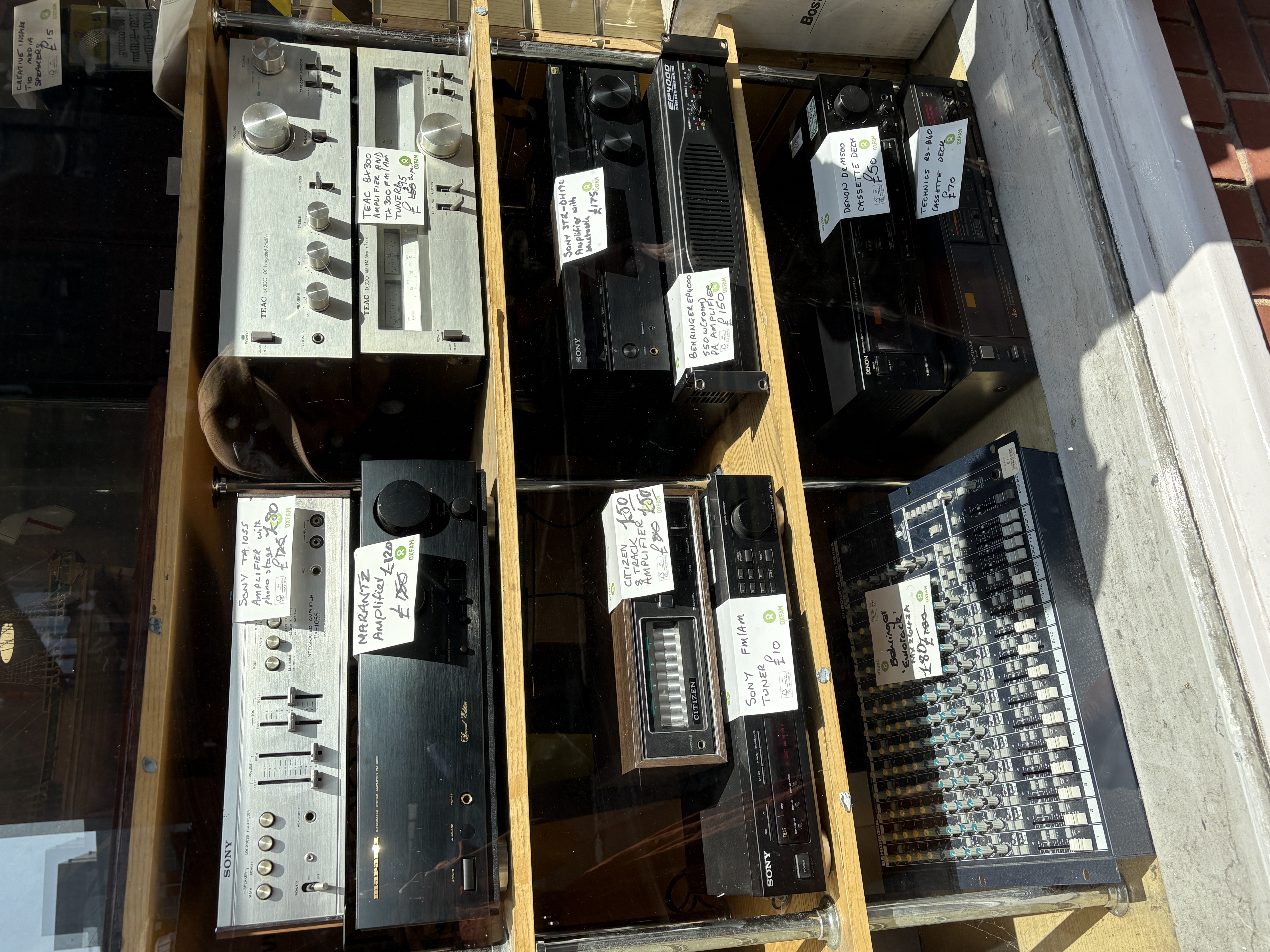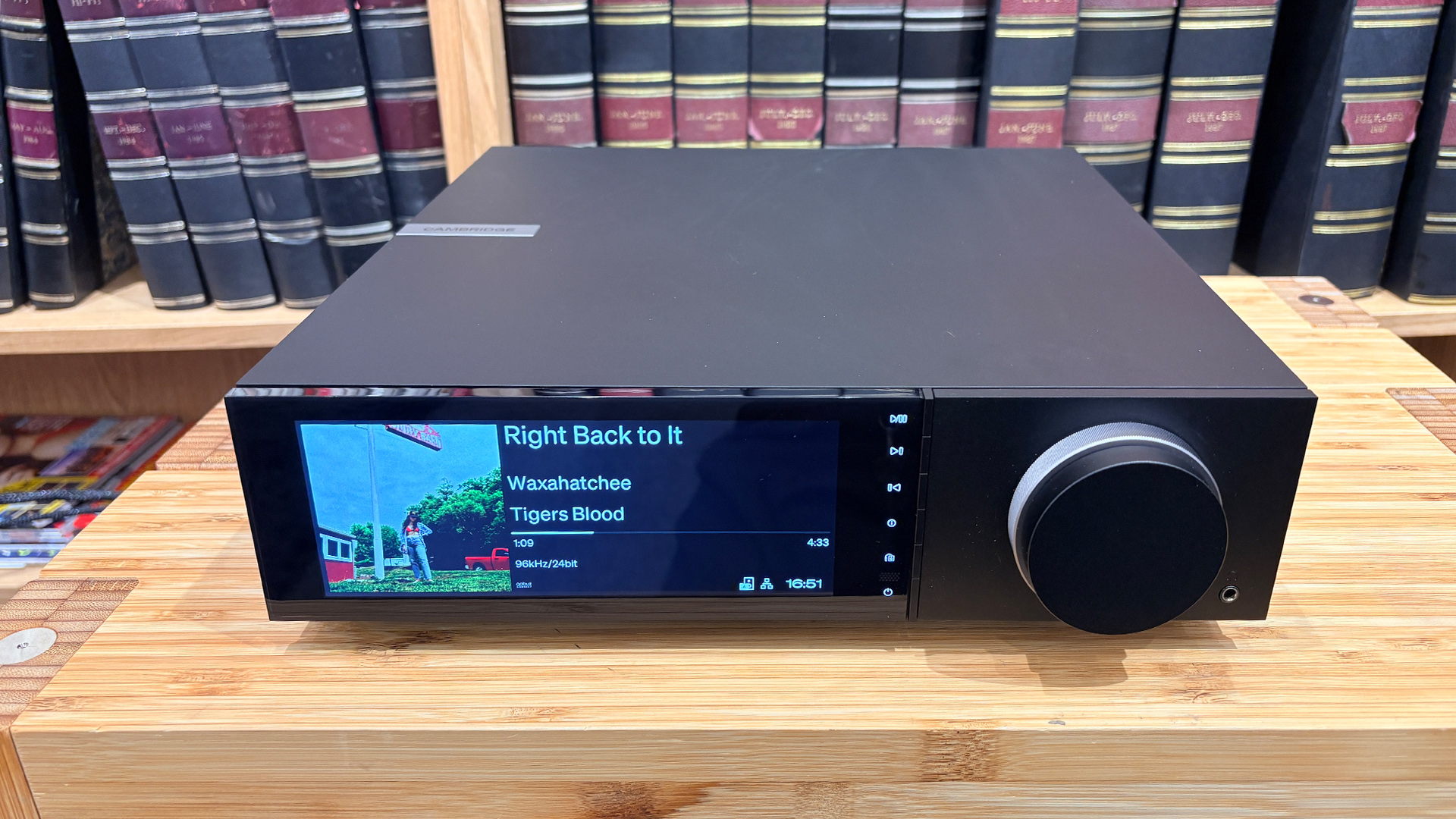What do you do with your old hi-fi equipment?
What options are there if you want to repair, recycle, sell or donate your old hi-fi?
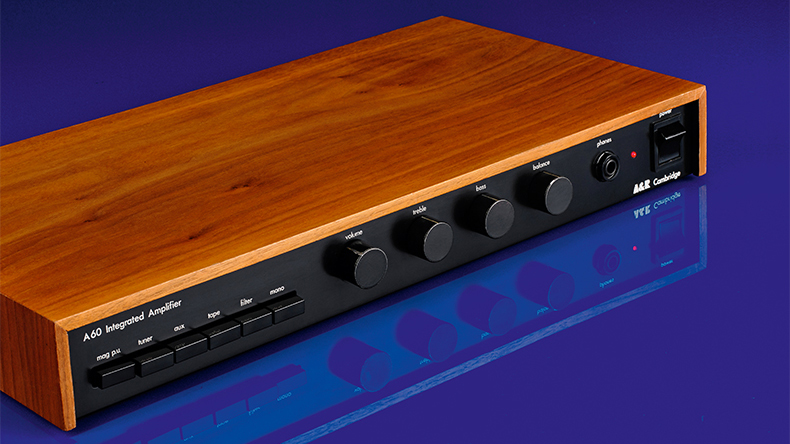
The latest hi-fi, home cinema and tech news, reviews, buying advice and deals, direct to your inbox.
You are now subscribed
Your newsletter sign-up was successful
Whether you're a decades-long hi-fi fan, new to this hobby, or have unearthed a trove of stereo equipment from your attic, the question will inevitably come up: what do you do with old hi-fi products?
Whether you are upgrading your system, the product is no longer working or you simply don't have the space to store it anymore, you might be wondering what your options are: do you list it on eBay, find your nearest electrical waste recycling centre, or are there places you can donate to? Can you get the product repaired, even if it's 20 or 50 years old, to get it playing again?
The good news is, there are plenty of ways to revive an old hi-fi product so it's working again, or even find ways to ensure it or its parts can be useful for someone else. In our more environmentally conscious world, there are also many initiatives that ensure products can be repaired and/or disposed of responsibly and in more sustainable ways.
Of course, there are also plenty of options to sell, donate and trade-in – so your old hi-fi can go to a new home. For those wondering how to deal with your old hi-fi in the best way possible, here is a handy guide to the main options available.
As always, this is a general guide and not an exhaustive list of all the possible options and resources available on what to do with old hi-fi, so if you have found some great tips or avenues, please do share in the comments.
There are also plenty of hi-fi communities online – such as our Forums – where you can ask for advice on specific hi-fi models and for first-hand experience from owners who have gone through any of these processes.
Repair and servicing
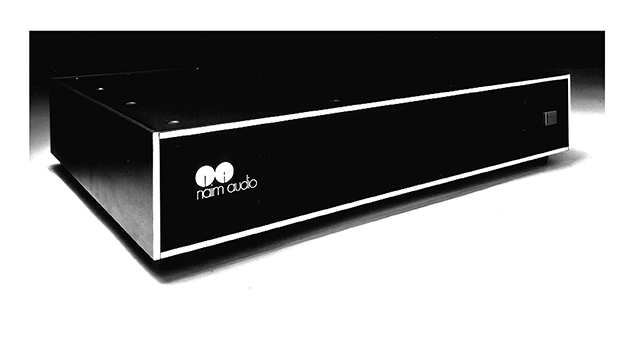
When dealing with an old hi-fi product, we would always recommend first assessing if you can repair it or get it serviced so it is in full working order.
The latest hi-fi, home cinema and tech news, reviews, buying advice and deals, direct to your inbox.
There are so many hi-fi products that were (and continue to be) built to last for decades, and you might find that the 30-year-old stereo amplifier that's gathering dust might still be fully functional.
In fact, plenty of us on the What Hi-Fi? team own older amplifiers, turntables, and speakers that are still going strong today. So don't discount old products so easily – it might be cost-effective in the long run to see if you can get it working again.
Analogue products especially tend not to rely on cutting-edge digital technology, so they won't become obsolete that easily. An old pair of speakers, a fully analogue amplifier or manual turntable might still be perfectly usable again, provided it's in good shape.
Many hi-fi brands offer repair and servicing options for their products. It's best to check with the manufacturer directly for specific models – provided the manufacturer still exists, of course.
And don't be deterred if the product is decades old. Good hi-fi products are generally designed with longevity in mind.
Steve Sells, Technical Director at Naim Audio, tells us: "We’re currently still able to service and repair products that are over 40 years old, built not long after the company’s inception. Right from the off, our founder Julian Vereker designed his products with longevity at the fore and that has been a throughline in our design ever since, from the quality of the components used to the technical design of the circuitry."
Pro-Ject states that their products are modular and thus have a greater opportunity for specific parts to be upgraded, repaired and serviced. The brand has a 25-year spare parts availability guarantee for phono/turntable products, and also states: "If we are unable to supply the replacement part or carry out a repair, you can purchase a successor model for the cost of the replacement part or, in the case of repair, for the cost of the repair."
Sticking with turntables, Rega also confirms that it "regularly services older models, some of which are nearly 50 years old". Whether you have the very first Pro-Ject 1 or original Rega Planet turntables, the likelihood is that they can still get repaired today.
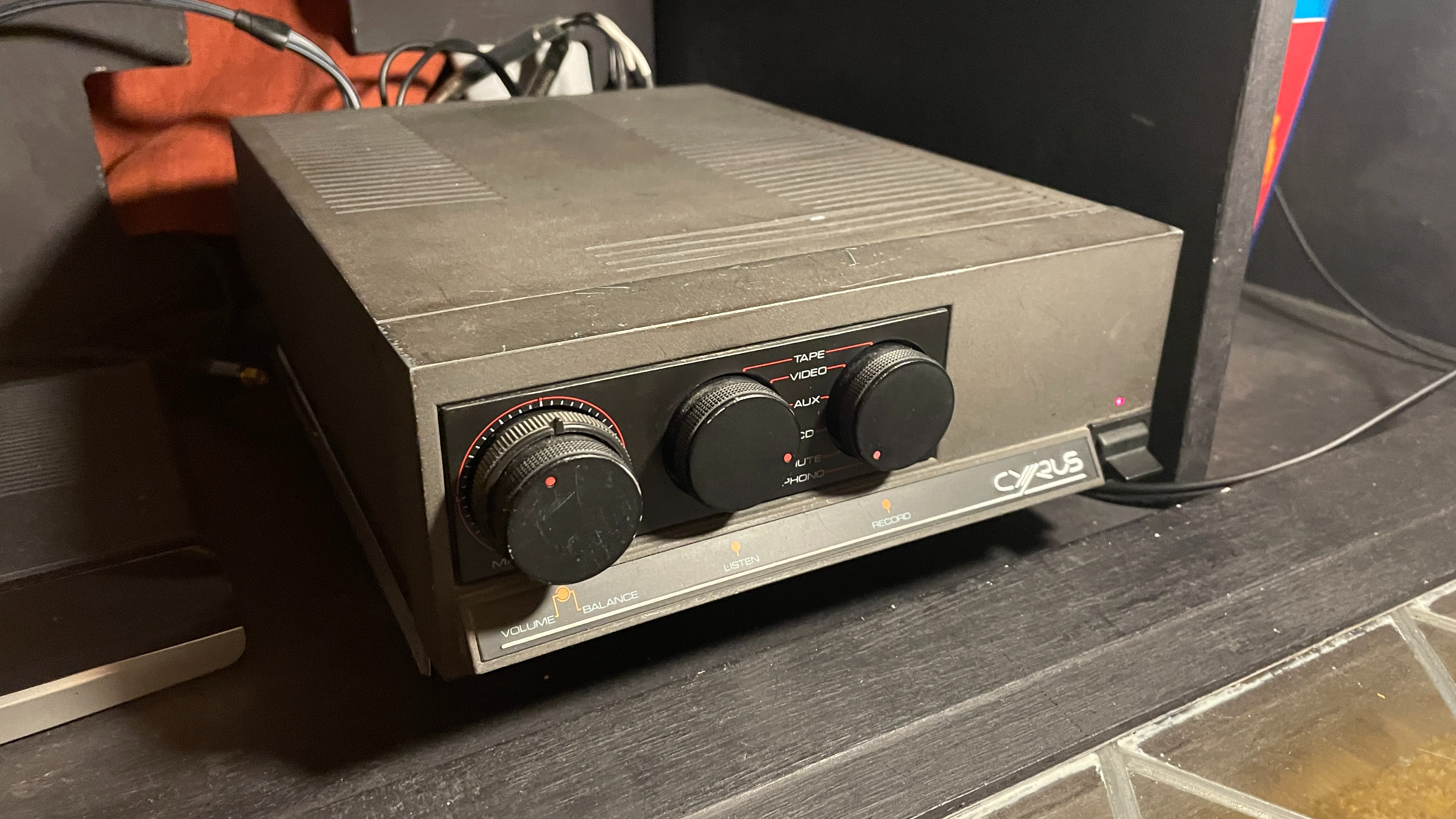
Cyrus Audio, meanwhile, has an informative and extensive product servicing programme that can be found on its website, with a flat fee stated for customers in the UK. "Cyrus can offer servicing for most products that we’ve ever manufactured, some of which may have left the factory more than 40 years ago. A service involves not only repairs to correct any faults that may have occurred, but also a complete inspection of the unit and replacement of any parts that show visible degradation that may impact the performance of the product."
Plenty of brands – such as Sony and Marantz – have authorised repair and service centres, while many specialist retailers and distributors also offer repair services for old hi-fi. You can also search for local hi-fi or electronics shops (such as Audio Gold in North London) to see if they can help with repairs or fixes, or point you in the right direction.
If you are keen to keep your old hi-fi going, or get it into good working order to sell or pass it on, then the best policy is simply to ask around and find out if it can be fixed.
The servicing aspect is true even for your existing hi-fi system. I've personally had my mid-1980s Cyrus One amplifier (pictured above) serviced a few years ago, and it's in perfect working order and still sounds fantastic.
Naim emphasises the importance of longevity, too: "We encourage Naim owners to get their products back to us periodically for a service, so we can keep their gear running and sounding perfect for years to come."
Sell and/or donate
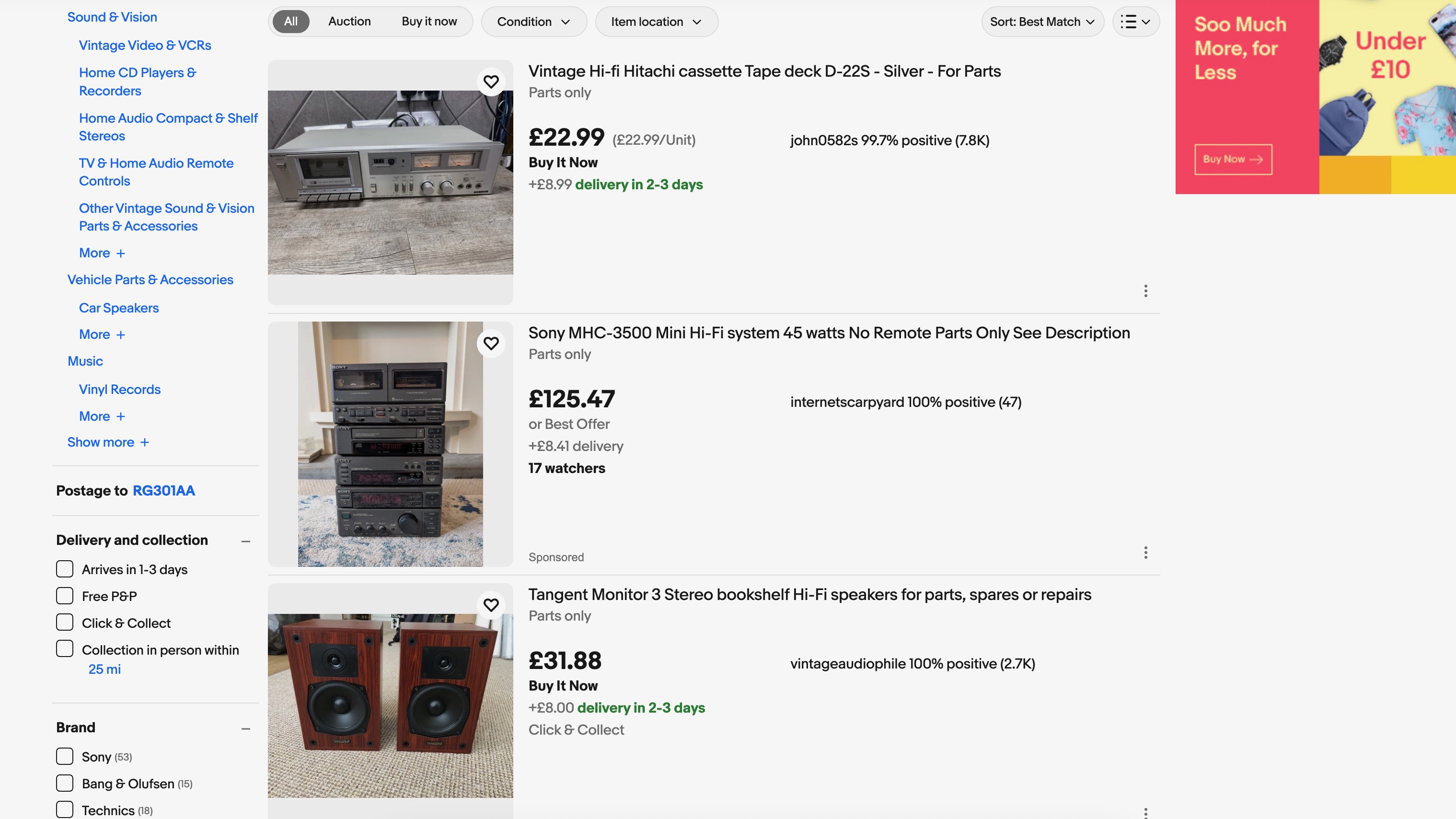
If you've decided you simply don't want to keep your old hi-fi anymore, there are two options: donate or sell.
The obvious route is eBay. eBay is a great place to sell (and buy) old hi-fi, and this works both for products that are in full working order as well as products that are no longer working. You can also list parts for sale, in case that is helpful for other hi-fi owners looking to repair their kit.
You'd be surprised at the variety of products and parts that you can list on eBay, so look for similar items to the one you have as a guide to what your listing should entail.
Another route is Facebook Marketplace, where you can also list hi-fi to sell, but it's also worth searching for more dedicated hi-fi groups (of which there are plenty) where you can sell or trade in your product to a fellow enthusiast.
Chris Hutcheson, head of marketing at Cyrus Audio, tells us that the second-hand market is very active with Cyrus products. He says: "As owners upgrade their hi-fi products, platforms such as eBay and Facebook (with the group "Cyrus Audio Listening Room" is an excellent forum for trading with other Cyrus fans) have provided a very easy way for the lifecycle of those products to be extended and enjoyed by music lovers who might otherwise not been able to begin their hi-fi journey. This is one of the key reasons why we continue to service as many legacy products as we possibly can for as long as we can!"
If you're not fussed about making some money out of selling your old hi-fi (and you've already exhausted the kids/family/friends avenues), then you can donate to charities and schools.
Again, your local hi-fi stores might have a donation scheme in place or can help point you in the right direction, while charities such as the British Heart Foundation accept big electricals (anything with a plug).
You can also ask your friends, local schools and any local shops if they might need donations of stereo equipment or know someone who does.
In the UK, Recycle Your Electricals is a great resource that can help you find places where you can donate (or sell) your unwanted electricals, including old speakers, so they can be reused and recycled – rather than simply throwing them away.
There are also specific music-focused charity stores, such as Oxfam Music Shops (five across the UK), that will take old hi-fi equipment. The local Oxfam Music shop in Reading always has a hugely tempting display of old hi-fi in the window – from old Sony tuners to TEAC amps (see picture above).
And finally, you can also check out local 'freecycle' groups to give your old equipment a new home for free. As the Richer Sounds website states, "Reuse is even better for the planet than recycling, and you will make someone very happy!"
Electrical recycling and trade-in schemes
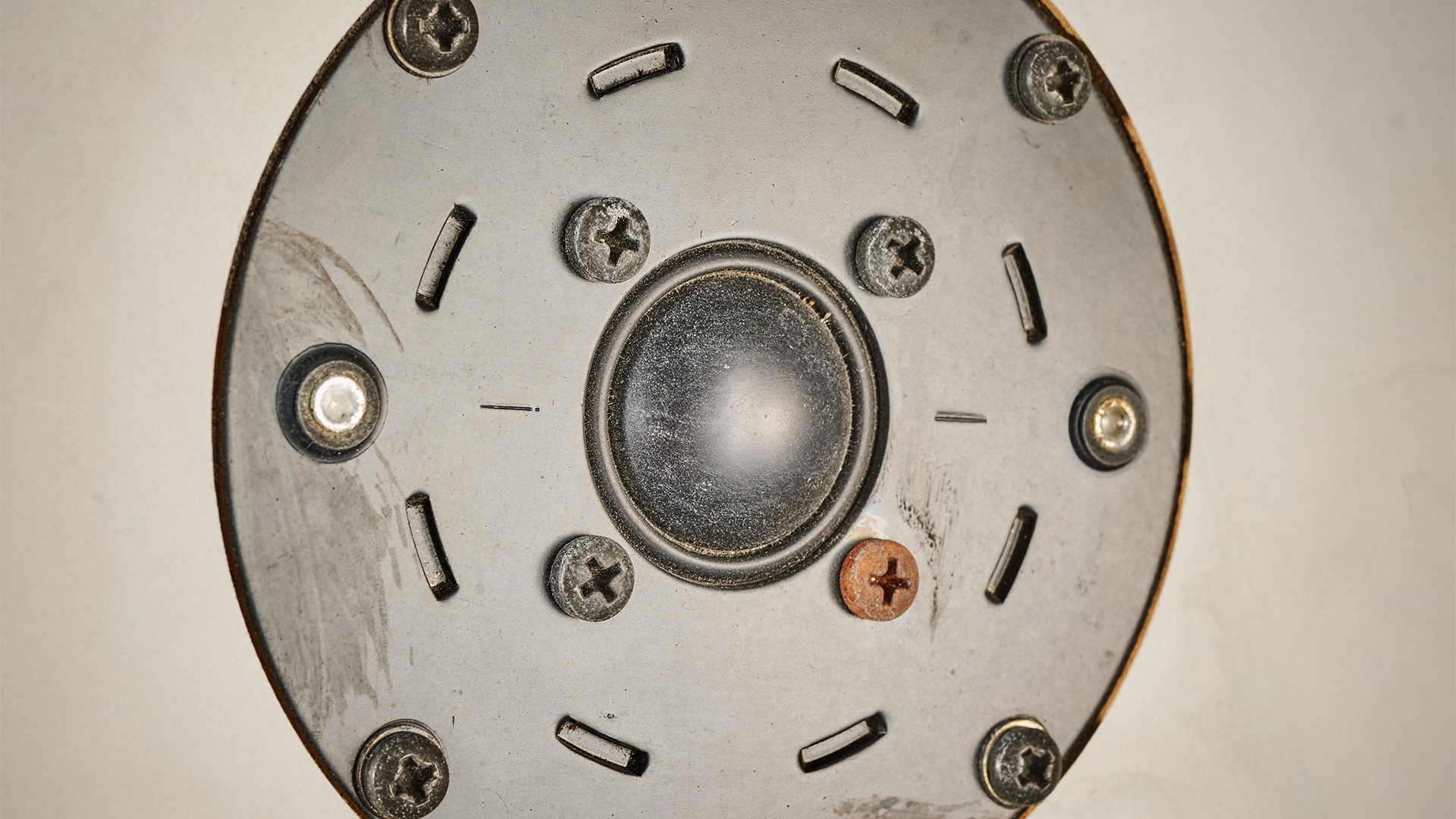
And if all else fails, and you can't fix, sell or donate your old hi-fi, then your local recycling centre is your port of call.
It's important to remember you shouldn't throw away any old hi-fi equipment in the bin! Unwanted electrical equipment is the UK’s fastest-growing type of waste, and if not recycled properly, these can end up in the landfill where hazardous substances will leak out and cause soil and water contamination, and in turn harm wildlife and human health.
Many retailers, such as John Lewis, Currys and Sevenoaks Sound and Vision can help you with recycling your unwanted electricals (for free!), as part of the retailer take-back scheme for electricals. While this is especially useful when you're buying something new and want to recycle your old item, these three retailers don't require you to buy an item to take part.
Sevenoaks helpfully advises: "We are pleased to offer our customers the chance to recycle their old electrical items. To comply with the WEEE Regulations, Sevenoaks Sound and Vision offers to take your old equipment back at our stores. To remind you that old electrical equipment can be recycled, it is now marked with a crossed-out wheeled bin symbol."
Chris Hutcheson, meanwhile, says that Cyrus Audio has long provided trade-in opportunities, and the hi-fi product doesn't always have to be a Cyrus product or even in full working order either, as they can often make use of it.
He says: "We have always taken the old units into our service department and retained any parts/components which are no longer available to buy [this is regarding older CD players]. Only once a product has been stripped down and cannot be used any further, it will then be recycled in line with the UK WEEE directive. We haven’t only accepted our own products when it comes to trade-ins, we have generally accepted any hi-fi product (working or not), which have then been recycled along with our own products to reduce as much electronics as we can going to landfill."
So there you have it: there are plenty of avenues you can explore when dealing with old hi-fi, whether you are looking to repair it or looking for options to find it a new home, or dispose of it responsibly.
As the What Hi-Fi? team is based in the UK, a lot of these links and resources are specific to the regulations and options available in the UK, but this should also provide a helpful guide to finding similar resources and schemes in your country. The advice on checking with your local hi-fi shop and the product's manufacturer for repairs, servicing or donation/recycling options remains the same no matter where you are in the world.
MORE:
What Sennheiser’s legendary HD650 headphones can teach the hi-fi industry about sustainability
Read all our features and advice for Sustainability Week

Kashfia is the Hi-Fi and Audio Editor of What Hi-Fi? and first joined the brand 13 years ago. During her time in the consumer tech industry, she has reviewed hundreds of products (including speakers, amplifiers, turntables and headphones), been to countless trade shows across the world and fallen in love with hi-fi kit much bigger than her. In her spare time, Kash can be found tending to an ever-growing houseplant collection and shooing her cat away from spinning records.
You must confirm your public display name before commenting
Please logout and then login again, you will then be prompted to enter your display name.
